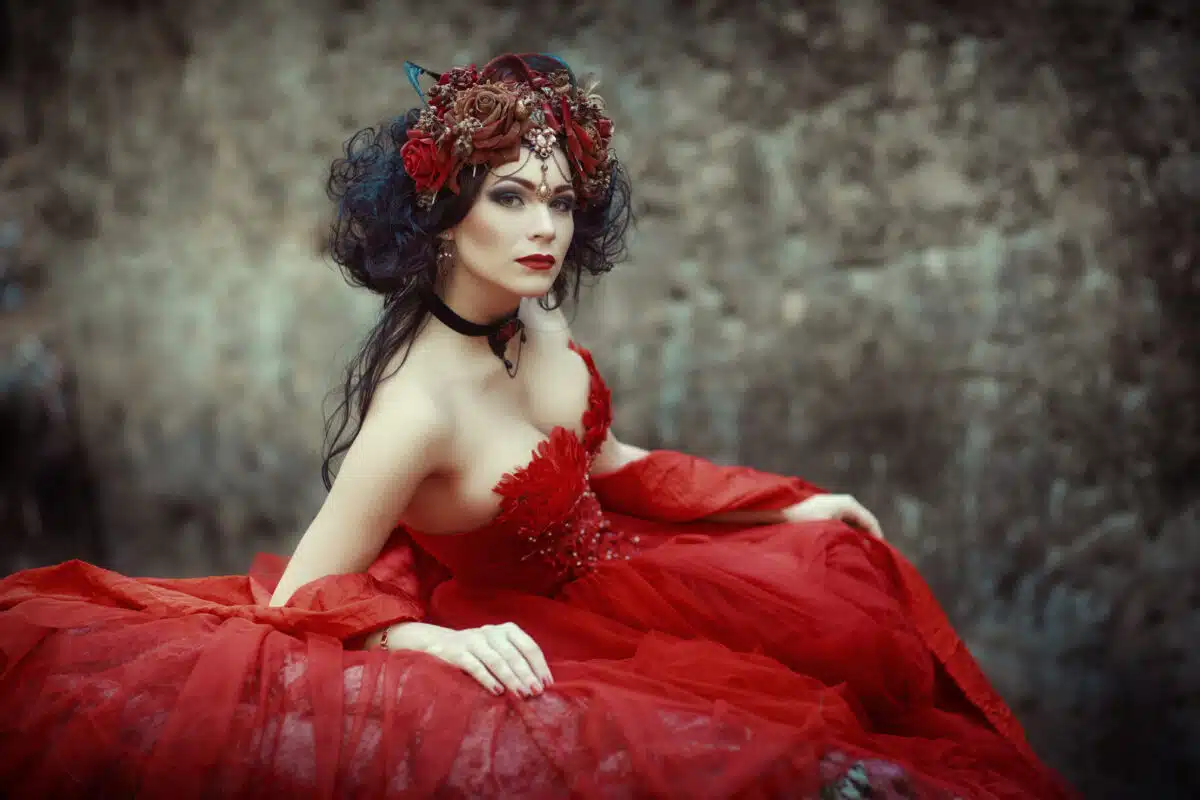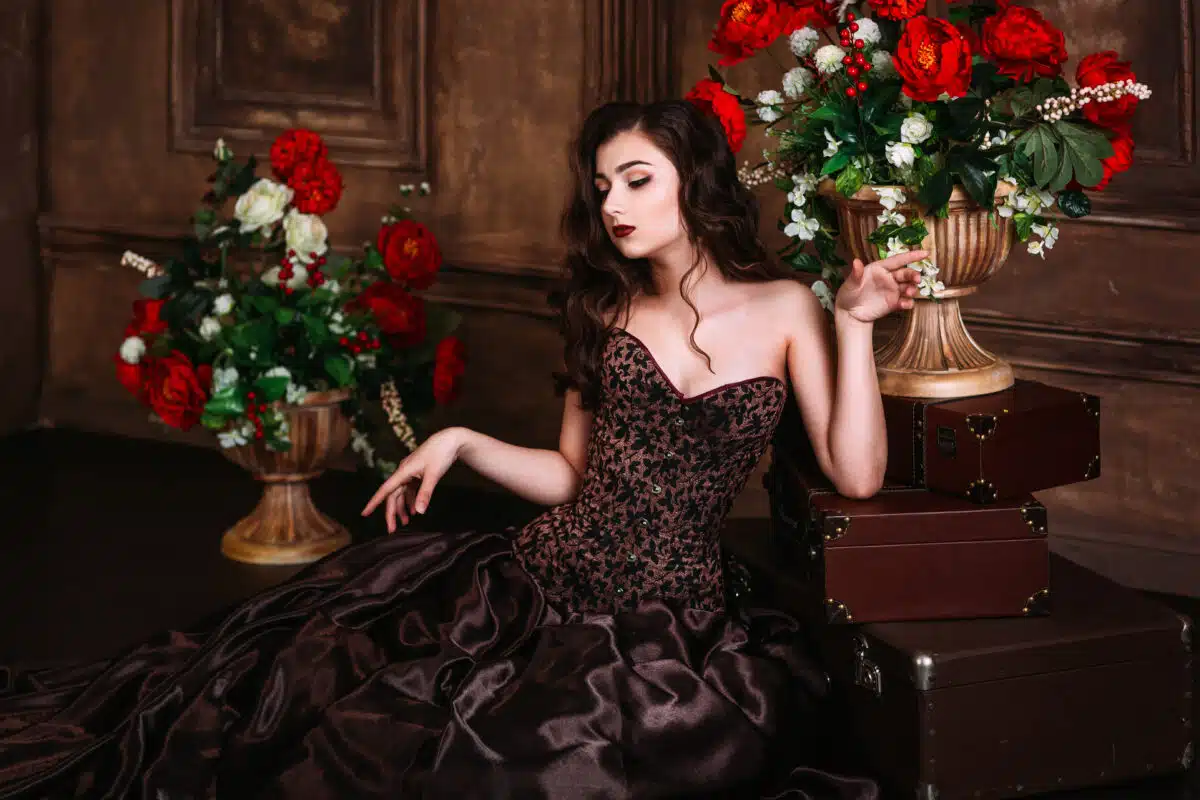Here are my favorite poems about deception categorized:
- Short poems about deception
- Famous poems about deception
- Poems about deception and lies
So if you want the best poems about deception, then you’re in the right place.
Let’s get into it!
- 113 Flabbergasting Poems About Lies and Truth
- 55 Self-Absorbed Poems About Vanity
- 103 Tempting Poems About Lies
- 41 Crushing Poems About Betrayal

Emotional Poems About Deception
Unveil the captivating world of deception through a curated selection of exquisite poems, meticulously categorized for your exploration.
Encounter the brevity and impact of short poems that expose the intricacies of deceit, alongside the timeless allure of renowned poems that navigate the treacherous landscapes of illusion.
Immerse yourself in this poetic journey where truth and deception intertwine, revealing the profound complexities of human nature in succinct and powerful verses.
Let’s get started!
My #1 Favorite Poem About Deception

“When My Love Swears That She Is Made of Truth (Sonnet 138)” by William Shakespeare
When my love swears that she is made of truth,
I do believe her though I know she lies,
That she might think me some untutor’d youth,
Unlearned in the world’s false subtleties.
Thus vainly thinking that she thinks me young,
Although she knows my days are past the best,
Simply I credit her false-speaking tongue:
On both sides thus is simple truth suppressed:
But wherefore says she not she is unjust?
And wherefore say not I that I am old?
O! love’s best habit is in seeming trust,
And age in love, loves not to have years told:
Therefore I lie with her, and she with me,
And in our faults by lies we flatter’d be.
Short Poems About Deception

“The Deceiver” by Helen Muckley
He looks into my truthful face
Beneath the rising moon,
And on his balalaika
He plays a lying tune.
My lover is but playing—
The real deceiver I,
Who look up with my truthful face
And love him for his lie.
“Self-Deceit” by Johann Wolfgang von Goethe
My neighbour’s curtain, well I see,
Is moving to and fin.
No doubt she’s list’ning eagerly,
If I’m at home or no.
And if the jealous grudge I bore
And openly confess’d,
Is nourish’d by me as before,
Within my inmost breast.
Alas! no fancies such as these
E’er cross’d the dear child’s thoughts.
I see ’tis but the ev’ning breeze
That with the curtain sports.
“Fair Shows Deceive” by Robert Herrick
Smooth was the sea, and seem’d to call
Two pretty girls to play withal:
Who paddling there, the sea soon frown’d,
And on a sudden both were drown’d.
What credit can we give to seas,
Who, kissing, kill such saints as these?

“Memory” by Oliver Goldsmith
O memory, thou fond deceiver,
Still importunate and vain,
To former joys recurring ever,
And turning all the past to pain:
Thou, like the world, th’ oppress’d oppressing,
Thy smiles increase the wretch’s woe:
And he who wants each other blessing
In thee must ever find a foe.
“Fair Days: Or, Dawns Deceitful” by Robert Herrick
Fair was the dawn, and but e’en now the skies
Show’d like to cream inspir’d with strawberries,
But on a sudden all was chang’d and gone
That smil’d in that first sweet complexion.
Then thunder-claps and lightning did conspire
To tear the world, or set it all on fire.
What trust to things below, whenas we see,
As men, the heavens have their hypocrisy?
“On a Person Nicknamed the Marquis” by Robert Burns
Here lies a mock Marquis, whose titles were shamm’d;
If ever he rise, it will be to be damn’d.

“Parted” by Paul Laurence Dunbar
She wrapped her soul in a lace of lies,
With a prime deceit to pin it;
And I thought I was gaining a fearsome prize,
So I staked my soul to win it.
We wed and parted on her complaint,
And both were a bit of barter,
Tho’ I’ll confess that I’m no saint,
I’ll swear that she’s no martyr.
“Upon Boreman. Epig.” by Robert Herrick
Boreman takes toll, cheats, natters, lies; yet Boreman,
For all the devil helps, will be a poor man.
“Upon Eeles. Epig” by Robert Herrick
Eeles winds and turns, and cheats and steals; yet Eeles
Driving these sharking trades, is out at heels.

“Faith” by Frances Anne Kemble
Better trust all and be deceiv’d,
And weep that trust, and that deceiving,
Than doubt one heart that, if believ’d,
Had blessed one’s life with true believing.
Oh, in this mocking world, too fast
The doubting fiend o’ertakes our youth!
Better be cheated to the last
Than lose the blessèd hope of truth.
Famous Poems About Deception

“So Shall I Live, Supposing Thou Art True (Sonnet 93)” by William Shakespeare
So shall I live, supposing thou art true,
Like a deceived husband; so love’s face
May still seem love to me, though alter’d new;
Thy looks with me, thy heart in other place:
For there can live no hatred in thine eye,
Therefore in that I cannot know thy change.
In many’s looks the false heart’s history
Is writ in moods and frowns and wrinkles strange,
But heaven in thy creation did decree
That in thy face sweet love should ever dwell;
Whate’er thy thoughts or thy heart’s workings be,
Thy looks should nothing thence but sweetness tell.
How like Eve’s apple doth thy beauty grow,
If thy sweet virtue answer not thy show!
“In Loving Thee Thou Know’St I Am Forsworn (Sonnet 152)” by William Shakespeare
In loving thee thou know’st I am forsworn,
But thou art twice forsworn, to me love swearing.
In act thy bed-vow broke and new faith torn
In vowing new hate after new love bearing.
But why of two oaths’ breach do I accuse thee,
Why I break twenty? I am perjured most;
For all my vows are oaths but to misuse thee
And all my honest faith in thee is lost,
For I have sworn deep oaths of thy deep kindness,
Oaths of thy love, thy truth, thy constancy,
And, to enlighten thee, gave eyes to blindness,
Or made them swear against the thing they see;
For I have sworn thee fair; more perjured I,
To swear against the truth so foul a lie!
“The False Gods” by Edwin Arlington Robinson
“We are false and evanescent, and aware of our deceit,
From the straw that is our vitals to the clay that is our feet.
You may serve us if you must, and you shall have your wage of ashes,—
Though arrears due thereafter may be hard for you to meet.
“You may swear that we are solid, you may say that we are strong,
But we know that we are neither and we say that you are wrong;
You may find an easy worship in acclaiming our indulgence,
But your large admiration of us now is not for long.
“If your doom is to adore us with a doubt that’s never still,
And you pray to see our faces—pray in earnest, and you will.
You may gaze at us and live, and live assured of our confusion:
For the False Gods are mortal, and are made for you to kill.
“And you may as well observe, while apprehensively at ease
With an Art that’s inorganic and is anything you please,
That anon your newest ruin may lie crumbling unregarded,
Like an old shrine forgotten in a forest of new trees.
“Howsoever like no other be the mode you may employ,
There’s an order in the ages for the ages to enjoy;
Though the temples you are shaping and the passions you are singing
Are a long way from Athens and a longer way from Troy.
“When we promise more than ever of what never shall arrive,
And you seem a little more than ordinarily alive,
Make a note that you are sure you understand our obligations—
For there’s grief always auditing where two and two are five.
“There was this for us to say and there was this for you to know,
Though it humbles and it hurts us when we have to tell you so.
If you doubt the only truth in all our perjured composition,
May the True Gods attend you and forget us when we go.”

“The Cunning Fox” by Jean de La Fontaine
A fox once practised, ’tis believed,
A stratagem right well conceived.
The wretch, when in the utmost strait
By dogs of nose so delicate,
Approach’d a gallows, where,
A lesson to like passengers,
Or clothed in feathers or in furs,
Some badgers, owls, and foxes, pendent were.
Their comrade, in his pressing need,
Arranged himself among the dead.
I seem to see old Hannibal
Outwit some Roman general,
And sit securely in his tent,
The legions on some other scent.
But certain dogs, kept back
To tell the errors of the pack,
Arriving where the traitor hung,
A fault in fullest chorus sung.
Though by their bark the welkin rung,
Their master made them hold the tongue.
Suspecting not a trick so odd,
Said he, “The rogue’s beneath the sod.
My dogs, that never saw such jokes,
Won’t bark beyond these honest folks.”
The rogue would try the trick again.
He did so to his cost and pain.
Again with dogs the welkin rings;
Again our fox from gallows swings;
But though he hangs with greater faith
This time, he does it to his death.
So uniformly is it true,
A stratagem is best when new.
“Said Secrecy to Cowardice and Fraud” by William Wordsworth
Said Secrecy to Cowardice and Fraud,
Falsehood and Treachery, in close council met,
Deep under ground, in Pluto’s cabinet,
“The frost of England’s pride will soon be thawed;
“Hooded the open brow that overawed
“Our schemes; the faith and honour, never yet
“By us with hope encountered, be upset;
“For once I burst my bands, and cry, applaud!”
Then whispered she, “The Bill is carrying out!”
They heard, and, starting up, the Brood of Night
Clapped hands, and shook with glee their matted locks;
All Powers and Places that abhor the light
Joined in the transport, echoed back their shout,
Hurrah for, hugging his Ballot-box!
“Inconstancy” by Thomas Moore
And do I then wonder that Julia deceives me,
When surely there’s nothing in nature more common?
She vows to be true, and while vowing she leaves me–
And could I expect any more from a woman?
Oh, woman! your heart is a pitiful treasure;
And Mahomet’s doctrine was not too severe,
When he held that you were but materials of pleasure,
And reason and thinking were out of your sphere.
By your heart, when the fond sighing lover can win it,
He thinks that an age of anxiety’s paid;
But, oh, while he’s blest, let him die at the minute–
If he live but a day, he’ll be surely betrayed.

“To Julia” by Thomas Moore
Mock me no more with Love’s beguiling dream,
A dream, I find, illusory as sweet:
One smile of friendship, nay, of cold esteem,
Far dearer were than passion’s bland deceit!
I’ve heard you oft eternal truth declare;
Your heart was only mine, I once believed.
Ah! shall I say that all your vows were air?
And must I say, my hopes were all deceived?
Vow, then, no longer that our souls are twined
That all our joys are felt with mutual zeal;
Julia!—’tis pity, pity makes you kind;
You know I love, and you would seem to feel.
But shall I still go seek within those arms
A joy in which affection takes no part?
No, no, farewell! you give me but your charms,
When I had fondly thought you gave your heart.
“This World Is All a Fleeting Show” by Thomas Moore
This world is all a fleeting show,
For man’s illusion given;
The smiles of joy, the tears of woe,
Deceitful shine, deceitful flow—
There’s nothing true but Heaven!
And false the light on glory’s plume,
As fading hues of even;
And love and hope, and beauty’s bloom,
Are blossoms gathered for the tomb—
There’s nothing bright but Heaven!
Poor wanderers of a stormy day,
From wave to wave we’re driven,
And fancy’s flash and reason’s ray
Serve but to light the troubled way—
There’s nothing calm but Heaven!
“Song” by Thomas Moore
Mary, I believed thee true,
And I was blest in thus believing
But now I mourn that e’er I knew
A girl so fair and so deceiving.
Fare thee well.
Few have ever loved like me,–
Yes, I have loved thee too sincerely!
And few have e’er deceived like thee.–
Alas! deceived me too severely.
Fare thee well!–yet think awhile
On one whose bosom bleeds to doubt thee:
Who now would rather trust that smile,
And die with thee than live without thee.
Fare thee well! I’ll think of thee.
Thou leavest me many a bitter token;
For see, distracting woman, see,
My peace is gone, my heart is broken!–
Fare thee well!

“Woman” by Thomas Moore
Away, away—you’re all the same,
A smiling, fluttering, jilting throng;
And, wise too late, I burn with shame,
To think I’ve been your slave so long.
Slow to be won, and quick to rove,
From folly kind, from cunning loath,
Too cold for bliss, too weak for love,
Yet feigning all that’s best in both;
Still panting o’er a crowd to reign,—
More joy it gives to woman’s breast
To make ten frigid coxcombs vain,
Than one true, manly lover blest.
Away, away—your smile’s a curse—
Oh! blot me from the race of men,
Kind, pitying Heaven, by death or worse,
If e’er I love such things again.
“Complaint for True Love Unrequited” by Sir Thomas Wyatt
What vaileth truth, or by it to take pain?
To strive by steadfastness for to attain
How to be just, and flee from doubleness?
Since all alike, where ruleth craftiness,
Rewarded is both crafty, false, and plain.
Soonest he speeds that most can lie and feign:
True meaning heart is had in high disdain.
Against deceit and cloaked doubleness,
What vaileth truth, or perfect steadfastness?
Deceived is he by false and crafty train,
That means no guile, and faithful doth remain
Within the trap, without help or redress:
But for to love, lo, such a stern mistress,
Where cruelty dwells, alas, it were in vain.
“Self-Deception” by Matthew Arnold
Say, what blinds us, that we claim the glory
Of possessing powers not our share?
— Since man woke on earth, he knows his story,
But, before we woke on earth, we were.
Long, long since, undower’d yet, our spirit
Roam’d, ere birth, the treasuries of God;
Saw the gifts, the powers it might inherit,
Ask’d an outfit for its earthly road.
Then, as now, this tremulous, eager being
Strain’d and long’d and grasp’d each gift it saw;
Then, as now, a Power beyond our seeing
Staved us back, and gave our choice the law.
Ah, whose hand that day through Heaven guided
Man’s new spirit, since it was not we?
Ah, who sway’d our choice, and who decided
What our gifts, and what our wants should be?
For, alas! he left us each retaining
Shreds of gifts which he refused in full.
Still these waste us with their hopeless straining,
Still the attempt to use them proves them null.
And on earth we wander, groping, reeling;
Powers stir in us, stir and disappear.
Ah! and he, who placed our master-feeling,
Fail’d to place that master-feeling clear.
We but dream we have our wish’d-for powers,
Ends we seek we never shall attain.
Ah! some power exists there, which is ours?
Some end is there, we indeed may gain?
Poems About Deception and Lies

“Lying” by Thomas Moore
I do confess, in many a sigh,
My lips have breath’d you many a lie,
And who, with such delights in view,
Would lose them for a lie or two?
Nay — look not thus, with brow reproving:
Lies are, my dear, the soul of loving!
If half we tell the girls were true,
If half we swear to think and do,
Were aught but lying’s bright illusion,
The world would be in strange confusion!
If ladies’ eyes were, every one,
As lovers swear, a radiant sun,
Astronomy should leave the skies,
To learn her lore in ladies’ eyes!
Oh no! — believe me, lovely girl,
When nature turns your teeth to pearl,
Your neck to snow, your eyes to fire,
Your yellow locks to golden wire,
Then, only then, can heaven decree,
That you should live for only me,
Or I for you, as night and morn,
We’ve swearing kiss’d, and kissing sworn.
And now, my gentle hints to clear,
For once, I’ll tell you truth, my dear!
Whenever you may chance to meet
A loving youth, whose love is sweet,
Long as you’re false and he believes you,
Long as you trust and he deceives you,
So long the blissful bond endures;
And while he lies, his heart is yours:
But, oh! you’ve wholly lost the youth
The instant that he tells you truth!
“Against False Prophets and Deceitfull Teachers” by John Norden
O God, that guidst thy faithfull flock,
And leadst it by thine hand;
That gaust it water of the rock
In dry Arabia land:
Giue grace to vs to flye the men
That teach thy word awry,
Of whom thy Son forewarnd vs, when
He did their slights espye.
He did foresee hypocrisie
Should lurke in godly weede,
And wolues in sheepe-lyke tire to lye,
And on thy sheepe to feede.
The subtile serpent shrowdes his wiles,
Attirde like angell bright;
And false apostles, fraught with guiles,
Do counterfeite the light.
The man of sinne, that sits on hye
With triple crowne on pate,
And lifts his lewdnes to the skie,
Holds sauing Christ in hate.
He sends his subtile sots by swarmes
Through all the world, to win
Thy children pure by wicked charmes,
To draw their soules to sinne.
Keepe vs thy children, Lord, therefore;
Direct vs by thy grace,
That their inchantments may no more
Our zeale sincere deface:
And let thy truth be still our guide,
That we thereby may knowe
Their falshood, who doo start aside,
And flye the subtile foe.
From “The Parish: A Satire” by John Clare
I
In politics and politicians’ lies
The modern farmer waxes wondrous wise;
Opinionates with wisdom all compact,
And een could tell a nation how to act;
Throws light on darkness with excessive skill,
Knows who acts well and whose designs are ill,
Proves half the members nought but bribery’s tools,
And calls the past a dull dark age of fools.
As wise as Solomon they read the news,
Not with their blind forefathers’ simple views,
Who read of wars, and wished that wars would cease,
And blessed the King, and wished his country peace;
Who marked the weight of each fat sheep and ox,
The price of grain and rise and fall of stocks;
Who thought it learning how to buy and sell,
And him a wise man who could manage well.
No, not with such old-fashioned, idle views
Do these newsmongers traffic with the news.
They read of politics and not of grain,
And speechify and comment and explain,
And know so much of Parliament and state
You’d think they’re members when you heard them prate;
And know so little of their farms the while
They can but urge a wiser man to smile.
II
A thing all consequence here takes the lead,
Reigning knight-errant oer this dirty breed–
A bailiff he, and who so great to brag
Of law and all its terrors as Bumtagg;
Fawning a puppy at his master’s side
And frowning like a wolf on all beside;
Who fattens best where sorrow worst appears
And feeds on sad misfortune’s bitterest tears?
Such is Bumtagg the bailiff to a hair,
The worshipper and demon of despair,
Who waits and hopes and wishes for success
At every nod and signal of distress,
Happy at heart, when storms begin to boil,
To seek the shipwreck and to share the spoil.
Brave is this Bumtagg, match him if you can;
For there’s none like him living–save his man.
As every animal assists his kind
Just so are these in blood and business joined;
Yet both in different colours hide their art,
And each as suits his ends transacts his part.
One keeps the heart-bred villain full in sight,
The other cants and acts the hypocrite,
Smoothing the deed where law sharks set their gin
Like a coy dog to draw misfortune in.
But both will chuckle oer their prisoners’ sighs
And are as blest as spiders over flies.
Such is Bumtagg, whose history I resign,
As other knaves wait room to stink and shine;
And, as the meanest knave a dog can brag,
Such is the lurcher that assists Bumtagg.

“The First Lie” by Helen Leah Reed
I’m sure I did not break this cup;
It just fell down, – I know it did –
For I was only climbing up,
Why do they keep the cake-box hid? –
I wanted such a little bit!
And then I heard that creaking door,
I can’t tell what it was I hit,
Nor how that cup got on the floor.
The shelf it stood on was too high,
That cup my mother loved the most!
Oh dear! I never told a lie,
And mother whispered, “Do not boast,”
The day I said I never could.
(But there’s that broken cup!) – and then
I promised that I never would –
So – I’ll not tell a lie -again.
“The Lie” by Sir Walter Raleigh
Go, Soul, the body’s guest,
Upon a thankless arrant:
Fear not to touch the best;
The truth shall be thy warrant:
Go, since I needs must die,
And give the world the lie.
Say to the court, it glows
And shines like rotten wood;
Say to the church, it shows
What’s good, and doth no good:
If church and court reply,
Then give them both the lie.
Tell potentates, they live
Acting by others’ action;
Not loved unless they give,
Not strong but by a faction:
If potentates reply,
Give potentates the lie.
Tell men of high condition,
That manage the estate,
Their purpose is ambition,
Their practice only hate:
And if they once reply,
Then give them all the lie.
Tell them that brave it most,
They beg for more by spending,
Who, in their greatest cost,
Seek nothing but commending:
And if they make reply,
Then give them all the lie.
Tell zeal it wants devotion;
Tell love it is but lust;
Tell time it is but motion;
Tell flesh it is but dust:
And wish them not reply,
For thou must give the lie.
Tell age it daily wasteth;
Tell honour how it alters;
Tell beauty how she blasteth;
Tell favour how it falters:
And as they shall reply,
Give every one the lie.
Tell wit how much it wrangles
In tickle points of niceness;
Tell wisdom she entangles
Herself in over-wiseness:
And when they do reply,
Straight give them both the lie.
Tell physic of her boldness;
Tell skill it is pretension;
Tell charity of coldness;
Tell law it is contention:
And as they do reply,
So give them still the lie.
Tell fortune of her blindness;
Tell nature of decay;
Tell friendship of unkindness;
Tell justice of delay:
And if they will reply,
Then give them all the lie.
Tell arts they have no soundness,
But vary by esteeming;
Tell schools they want profoundness,
And stand too much on seeming:
If arts and schools reply,
Give arts and schools the lie.
Tell faith it’s fled the city;
Tell how the country erreth;
Tell manhood shakes off pity;
Tell virtue least preferreth:
And if they do reply,
Spare not to give the lie.
So when thou hast, as I
Commanded thee, done blabbing,—
Although to give the lie
Deserves no less than stabbing,—
Stab at thee he that will,
No stab the soul can kill.
“The Avaricious Wife and Tricking Gallant” by Jean de La Fontaine
Who knows the world will never feel surprise,
When men are duped by artful women’s eyes;
Though death his weapon freely will unfold;
Love’s pranks, we find, are ever ruled by gold.
To vain coquettes I doubtless here allude;
But spite of arts with which they’re oft endued,
I hope to show (our honour to maintain),
We can, among a hundred of the train,
Catch one at least, and play some cunning trick:—
For instance, take blithe Gulphar’s wily nick,
Who gained (old soldier-like) his ardent aim,
And gratis got an avaricious dame.
Look well at this, ye heroes of the sword,
Howe’er with wily freaks your heads be stored,
Beyond a doubt, at court I now could find,
A host of lovers of the Gulphar kind.
To Gasperin’s so often went our wight,
The wife at length became his sole delight,
Whose youth and beauty were by all confessed;
But, ’midst these charms, such av’rice she possessed.
The warmest love was checked;—a thing not rare,
In modern times at least, among the FAIR.
’Tis true, as I’ve already said, with such
Sighs nought avail, and promises not much;
Without a purse, who wishes should express,
Would vainly hope to gain a soft caress.
The god of love no other charm employs,
Than cars, and dress, and pleasure’s cheering joys;
From whose gay shops more cuckolds we behold,
Than heroes sallied from Troy’s horse of old.
But to our lady’s humour let’s adhere;
Sighs passed for nought:—they entered not her ear;
’Twas speaking only would the charmer please;—
The reader, without doubt, my meaning sees;
Gay Gulphar plainly spoke, and named a sum:
A hundred pounds; she listened:—was o’ercome.
Our wight the cash by Gasperin was lent;
And then the husband to the country went,
Without suspecting that his loving mate,
Designed with horns to ornament his pate.
The money artful Gulphar gave the dame,
While friends were round who could observe the same,
Here, said the spark, a hundred pounds receive,
’Tis for your spouse:—the cash with you I leave.
The lady fancied what the swain had said,
Was policy, and to concealment led.
Next morn our belle regaled the arch gallant,
Fulfilled her promise:—and his eager want.
Day after day he followed up the game;
For cash he took, and interest on the same;
Good payers get, we always may conclude,
Full measure served, whatever is pursued.
When Gasperin returned, our crafty wight,
Before the wife addressed her spouse at sight;
Said he the cash I’ve to your lady paid,
Not having (as I feared) required its aid;
To save mistakes, pray cross it in your book;
The lady, thunderstruck, with terror shook;
Allowed the payment; ’twas a case too clear;
In truth for character she ’gan to fear.
But most howe’er she grudged the surplus joy,
Bestowed on such a vile, deceitful boy.
The loss was doubtless great in ev’ry view:—
Around the town the wicked Gulphar flew;
In all the streets, at every house to tell,
How nicely he had trick’d the greedy belle.
To blame him useless ’twere you must allow;
The French such frolics readily avow.

“The Confessional” by Robert Browning
I.
It is a lie—their Priests, their Pope,
Their Saints, their… all they fear or hope
Are lies, and lies—there! through my door
And ceiling, there! and walls and floor,
There, lies, they lie—shall still be hurled
Till spite of them I reach the world!
II.
You think Priests just and holy men!
Before they put me in this den
I was a human creature too,
With flesh and blood like one of you,
A girl that laughed in beauty’s pride
Like lilies in your world outside.
III.
I had a lover—shame avaunt!
This poor wrenched body, grim and gaunt,
Was kissed all over till it burned,
By lips the truest, love e’er turned
His heart’s own tint: one night they kissed
My soul out in a burning mist.
IV.
So, next day when the accustomed train
Of things grew round my sense again,
‘That is a sin,’ I said: and slow
With downcast eyes to church I go,
And pass to the confession-chair,
And tell the old mild father there.
V.
But when I falter Beltran’s name,
‘Ha?’ quoth the father; ‘much I blame
’The sin; yet wherefore idly grieve?
‘Despair not—strenuously retrieve!
’Nay, I will turn this love of thine
‘To lawful love, almost divine;
VI.
’For he is young, and led astray,
‘This Beltran, and he schemes, men say,
’To change the laws of church and state
‘So, thine shall be an angel’s fate,
‘Who, ere the thunder breaks, should roll
’Its cloud away and save his soul.
VII.
‘For, when he lies upon thy breast,
’Thou mayst demand and be possessed
‘Of all his plans, and next day steal
’To me, and all those plans reveal,
‘That I and every priest, to purge
’His soul, may fast and use the scourge.’
VIII.
That father’s beard was long and white,
With love and truth his brow seemed bright;
I went back, all on fire with joy,
And, that same evening, bade the boy
Tell me, as lovers should, heart-free,
Something to prove his love of me.
IX.
He told me what he would not tell
For hope of heaven or fear of hell;
And I lay listening in such pride!
And, soon as he had left my side,
Tripped to the church by morning-light
To save his soul in his despite.
X.
I told the father all his schemes,
Who were his comrades, what their dreams;
‘And now make haste,’ I said, ‘to pray
’The one spot from his soul away;
‘To-night he comes, but not the same
’Will look!’ At night he never came.
XI.
Nor next night: on the after-morn,
I went forth with a strength new-born.
The church was empty; something drew
My steps into the street; I knew
It led me to the market-place:
Where, lo, on high, the father’s face!
XII.
That horrible black scaffold dressed,
That stapled block… God sink the rest!
That head strapped back, that blinding vest,
Those knotted hands and naked breast,
Till near one busy hangman pressed,
And, on the neck these arms caressed…
XIII.
No part in aught they hope or fear!
No heaven with them, no hell!—and here,
No earth, not so much space as pens
My body in their worst of dens
But shall bear God and man my cry,
Lies—lies, again—and still, they lie!
“A Madrigal” by Henry Austin Dobson
Before me, careless lying,
Young Love his ware comes crying;
Full soon the elf untreasures
His pack of pains and pleasures,–
With roguish eye,
He bids me buy
From out his pack of treasures.
His wallet’s stuffed with blisses,
With true-love-knots and kisses,
With rings and rosy fetters,
And sugared vows and letters;–
He holds them out
With boyish flout,
And bids me try the fetters.
Nay, Child (I cry), I know them;
There’s little need to show them!
Too well for new believing
I know their past deceiving,–
I am too old
(I say), and cold,
To-day, for new believing!
But still the wanton presses,
With honey-sweet caresses,
And still, to my undoing,
He wins me, with his wooing,
To buy his ware
With all its care,
Its sorrow and undoing.
“The Tidings” by Lola Ridge
Censored lies that mimic truth…
Censored truth as pale as fear…
My heart is like a rousing bell-
And but the dead to hear…
My heart is like a mother bird,
Circling ever higher,
And the nest-tree rimmed about
By a forest fire…
My heart is like a lover foiled
By a broken stair-
They are fighting to-night in Sackville Street,
And I am not there!

“The Lie” by John Donne
Sir, say not that you love, unless you do,
For often lying will dishonour you.
Lady, I love, and therefore love to do,
And will not lie, unless I lie with you.
You say I lie, I say you lie, judge whether;
If we then both do lie, let’s lie together.
“On the Russian Persecution of the Jews” by Algernon Charles Swinburne
O son of man, by lying tongues adored,
By slaughterous hands of slaves with feet red-shod
In carnage deep as ever Christian trod
Profaned with prayer and sacrifice abhorred
And incense from the trembling tyrant’s horde,
Brute worshippers or wielders of the rod,
Most murderous even of all that call thee God,
Most treacherous even that ever called thee Lord;
Face loved of little children long ago,
Head hated of the priests and rulers then,
If thou see this, or hear these hounds of thine
Run ravening as the Gadarean swine,
Say, was not this thy Passion, to foreknow
In death’s worst hour the works of Christian men?
“Forgiven” by Charles Hamilton Musgrove
I might have met his anger with a smile
For so it was that I had set my heart
To mask deception with a wanton’s guile,
And save the tears that now begin to start.
I might have worn my guilty crown of thorn,–
Yea, even worn it gladly like a prize;
But, oh! more bitter than his rage or scorn,
He left me with forgiveness in his eyes.
